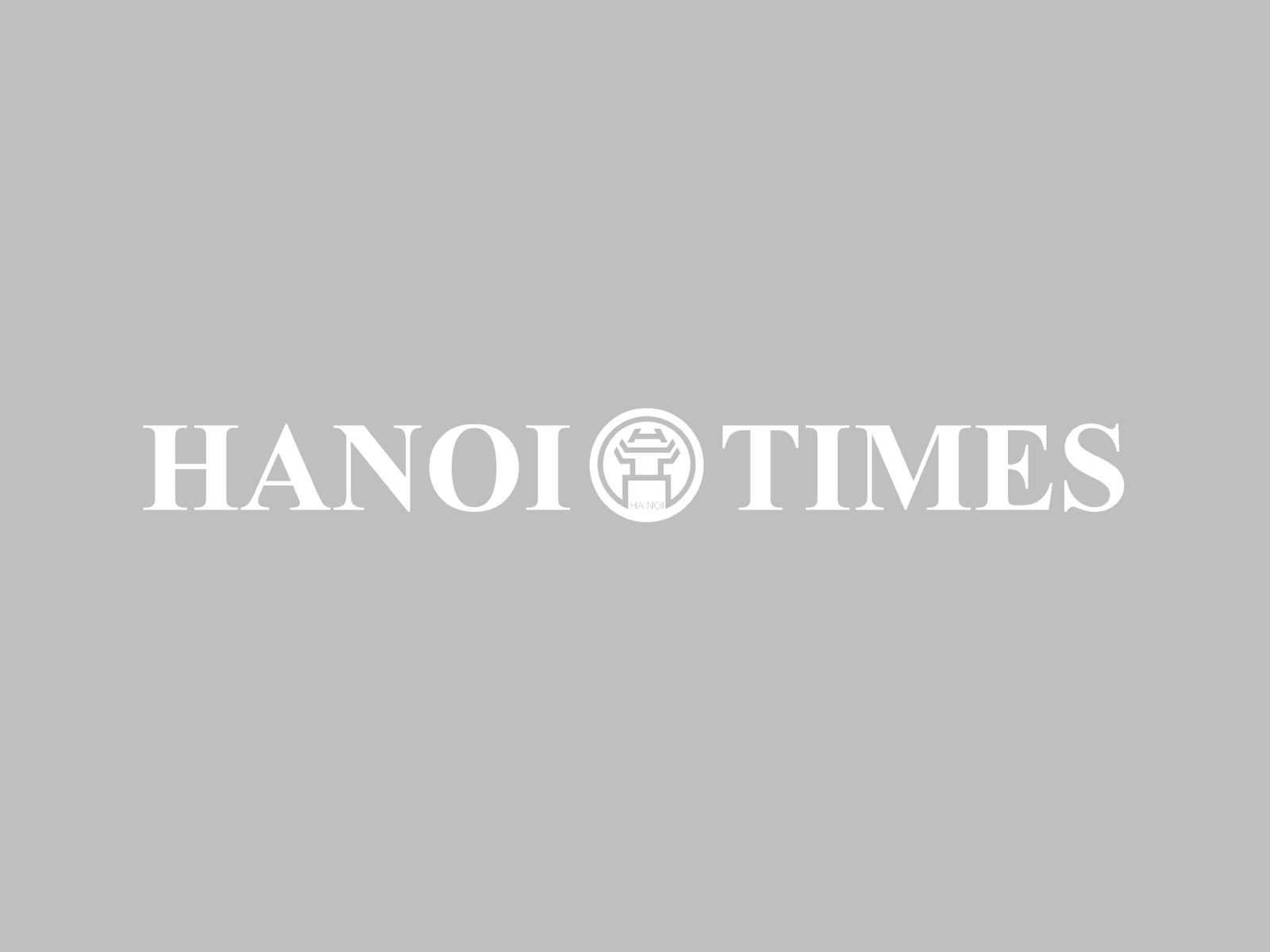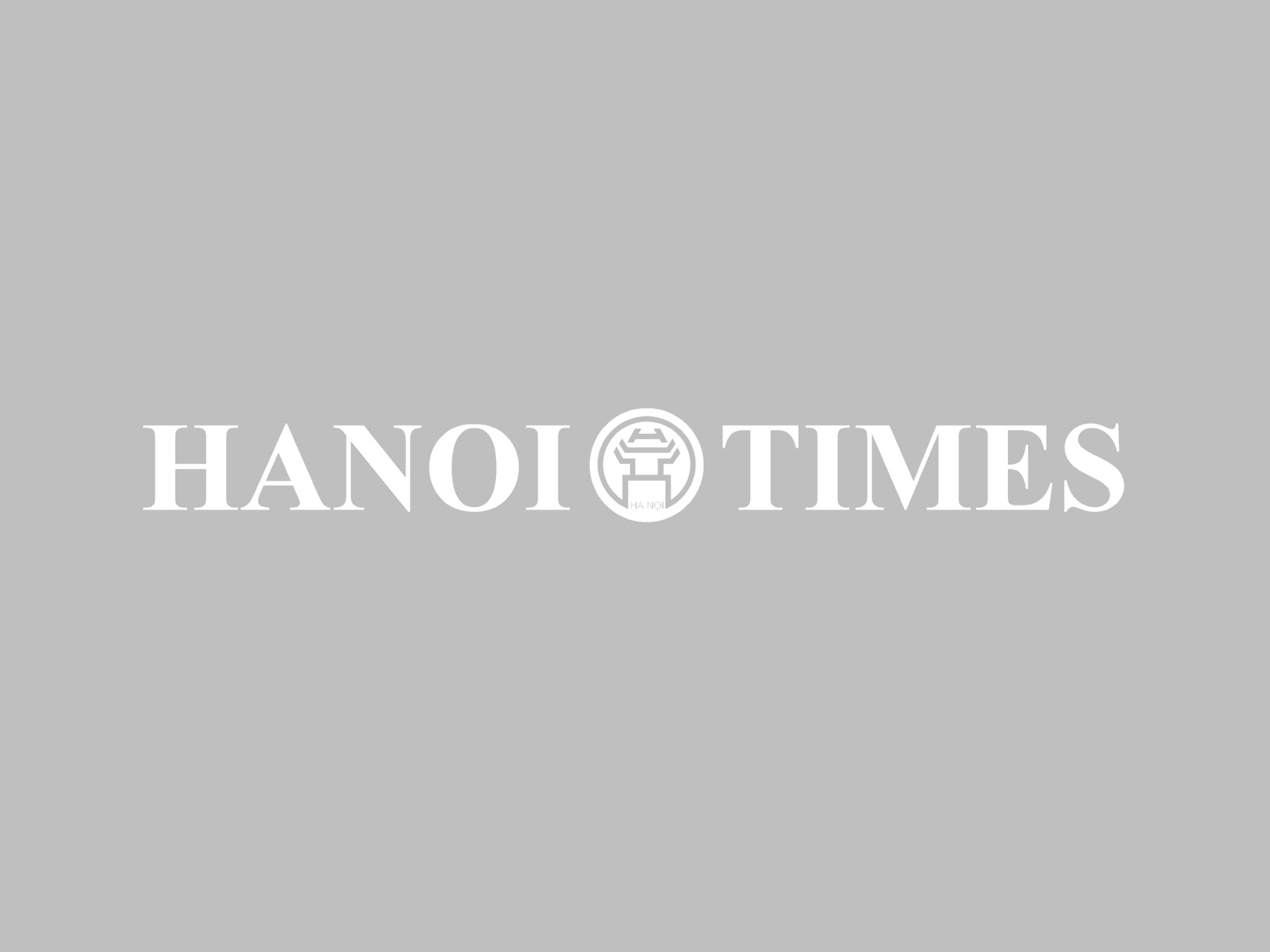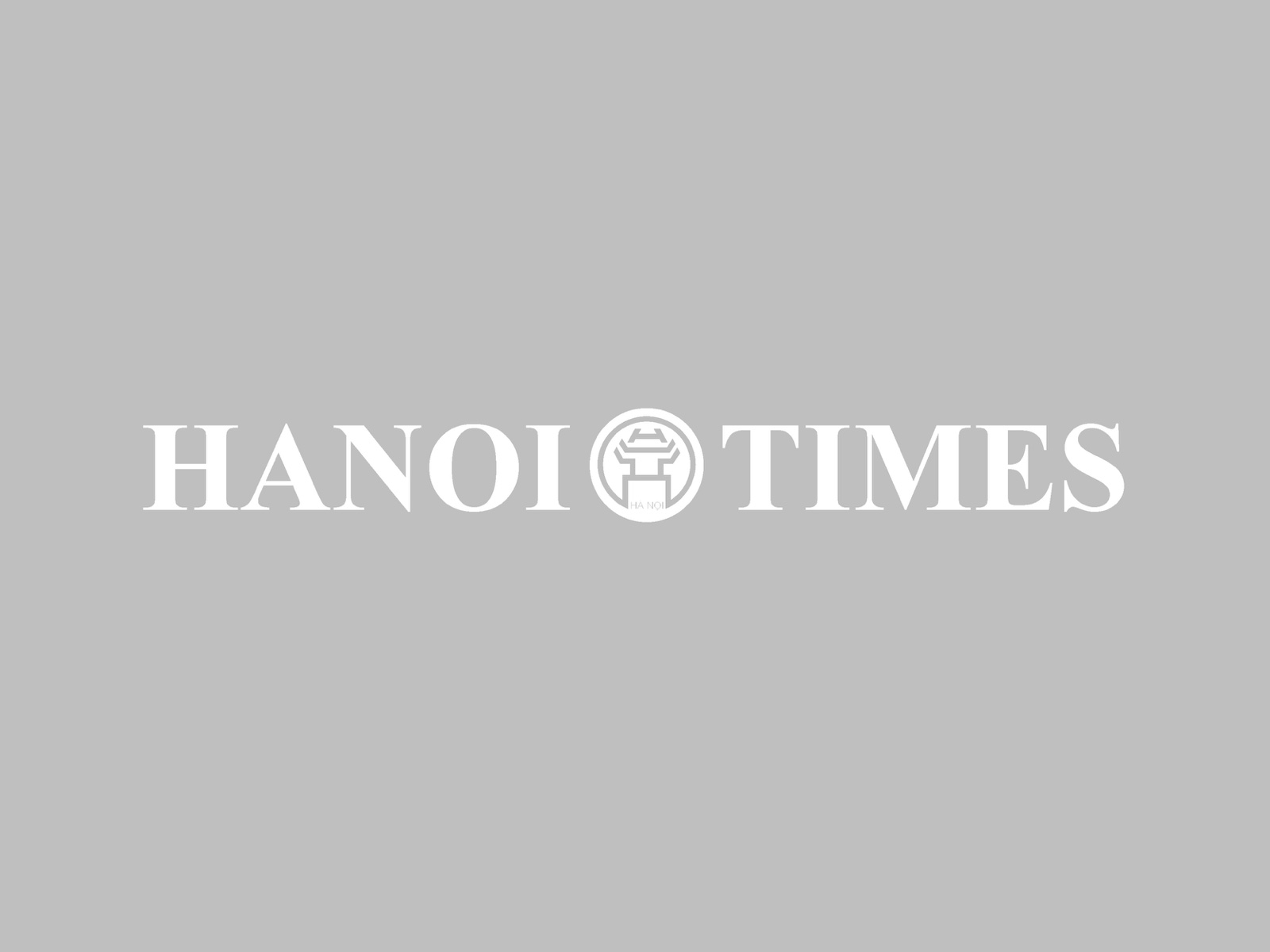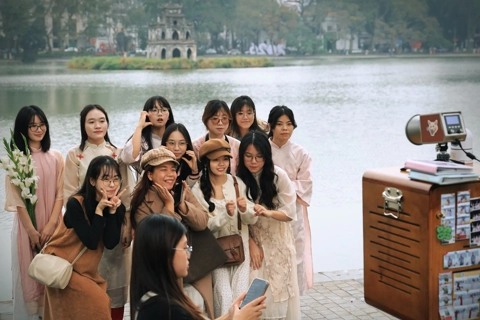Social Affairs
Reducing plastic waste: people should change habits
Jun 23, 2019 / 04:27 PM
Vietnamese consumers are not really interested in choosing safe plastic products, avoiding the risk of being contaminated with toxic substances.
Purchase and use of plastic bags, plastic boxes of food have become Vietnamese consumers’ habit, which needs to be changed to avoid health and environmental damange, according to experts.
Plastic appears almost everywhere in people's daily life
It can be said that plastic products in Vietnam are being produced and used extensively. It’s out of the government’s control. Consumers are not really interested in choosing safe plastic products, avoiding the risk of being contaminated with toxic substances.
At a glance, it’s not hard to find at restaurants and street food stalls the enormous amount of plastic straws, plastic spoons, foam boxes, plastic bags consumed every day, according to Tuoi Tre news.
The owner of a popular rice shop in Phuong Mai street, Hanoi said that the use of disposable food items is both convenient and economical, because there is no need to hire workers to clean and wash.
At ready-made food stores at markets in Hanoi such as Hang Khoai, Dong Xuan, Thanh Cong, Ha Dong, Phung Khoang, disposable plastic wares are extensively sold at very low cost. No information about the address of the production facility, product quality standards, or instructions on safe use is printed on the items.
People should say no to disposable plastic products
Use of straws has certain advantages, but produces a significant amount of waste. One of the easiest ways to minimize plastic waste is to end the use of plastic straws. We just need to tell the salesperson that we don't need plastic straws.
Besides, we can choose products with paper box packaging instead of plastic bottles/boxes because the cardboard can be more easily recycled and recycled cardboard could be use to make more things.
Moreover, consumers should use reusable bottles or utensils such as chopsticks, spoons and forks. We can bring a reusable glass to the cafe and tell the salesperson to pour coffee into our own cup and bring them to the desk instead of using a plastic cup or disposable paper cup.
If possible, we can bring containers when buying food or pack leftovers in the restaurant after meals.
The convenience of diapers is undeniable. However, every year, the amount of used baby diapers is quite large. According to the EPA, in the United States, people discharge 7.6 billion disposable diapers every year. In addition, it takes about 80,000 pounds of plastic and over 200,000 trees per year to produce disposable diapers for children in the United States only. Thus, simply switching to use cloth diapers for the babies, we will not only reduce the amount of waste from baby care, but we can also save a lot of money.
There are still many daily activities related to plastic reduction, but just by changing the five above-mentioned habits, we have helped to minimize large amount of unnecessary waste and curb environmental pollution by reducing disposable plastic products and plastic bags which are difficult to decompose.
Vietnamese government concerned about plastic waste
Prime Minister Nguyen Xuan Phuc emphasized the need to take practical and concrete measures to control and reduce plastic waste while launching a national campaign on plastic waste prevention in Hanoi on June 9.
As many as 11 million tons of plastic waste are floating over the oceans. Plastic waste has caused negative impacts on the ecosystem and the living environment, hampering people’s health and sustainable growth of each nation.
Therefore, he asked competent ministries, agencies and localities to outline programs and plans on phasing out the use of plastic products and work to realize the target of not using single-use plastic ware in urban markets, convenience stores and supermarkets by 2021, and nationwide by 2025.
The PM particularly mentioned the role of the press in raising public awareness of the issue, saying the communication work should focus on typical programs and models that contribute to plastic waste reduction such as "Green Sunday" project in Thua Thien-Hue province, “Say no to plastic waste” in Da Nang city, and using natural wrapping in several supermarkets, among others.
Phuc expressed his pleasure on witnessing practical models, initiatives, and action taken by some localities, enterprises, and communities to mitigate, categorize, and recycle plastic waste.
According the government leader, Vietnam has joined hands with other countries, submitted initiatives and participated in global and regional mechanisms to resolve plastic waste. He also called upon international cooperation against plastic bags in favor of mankind prosperity.
In 2021, 100% supermarkets in Hanoi will no longer use disposable plastic bags
It is the commitment of Chairman of the Hanoi People's Committee Nguyen Duc Chung when he represented localities to respond to the national campaign on plastic waste prevention.
"By December 31, 2020, 100% of commercial centers and supermarkets in Hanoi will not use plastic bags," Chung stressed.
He said it is time to take action to control and prevent plastic bags, adding that there are a lot of shortcomings and limitations in plastic waste derived from awareness of businesses and popular habit of people on consumption of plastic bags.
Chung underlined the necessity to have high political determination and effective measures to prevent and reduce plastic waste pollution and say no to plastic bags.
He proposed every public servant, official, party member to support specific plans on plastic bag prevention and limit procurement of disposable plastic products. The city’s leadership should take the lead and set examples in getting rid of plastic products and disposable plastic bags, Chung noted.
He noticed the importance of strengthening investment, research, and application of new technologies in plastic waste recycling, development of alternative materials.
Plastic appears almost everywhere in people's daily life
It can be said that plastic products in Vietnam are being produced and used extensively. It’s out of the government’s control. Consumers are not really interested in choosing safe plastic products, avoiding the risk of being contaminated with toxic substances.

Plastic appears almost everywhere in people's daily life. Photo: NC
|
The owner of a popular rice shop in Phuong Mai street, Hanoi said that the use of disposable food items is both convenient and economical, because there is no need to hire workers to clean and wash.
At ready-made food stores at markets in Hanoi such as Hang Khoai, Dong Xuan, Thanh Cong, Ha Dong, Phung Khoang, disposable plastic wares are extensively sold at very low cost. No information about the address of the production facility, product quality standards, or instructions on safe use is printed on the items.
People should say no to disposable plastic products
Use of straws has certain advantages, but produces a significant amount of waste. One of the easiest ways to minimize plastic waste is to end the use of plastic straws. We just need to tell the salesperson that we don't need plastic straws.
Besides, we can choose products with paper box packaging instead of plastic bottles/boxes because the cardboard can be more easily recycled and recycled cardboard could be use to make more things.

Many people in Da Nang city go to market with long-term baskets, they do not use nylon bags. Photo: Truong Trung
|
If possible, we can bring containers when buying food or pack leftovers in the restaurant after meals.
The convenience of diapers is undeniable. However, every year, the amount of used baby diapers is quite large. According to the EPA, in the United States, people discharge 7.6 billion disposable diapers every year. In addition, it takes about 80,000 pounds of plastic and over 200,000 trees per year to produce disposable diapers for children in the United States only. Thus, simply switching to use cloth diapers for the babies, we will not only reduce the amount of waste from baby care, but we can also save a lot of money.
There are still many daily activities related to plastic reduction, but just by changing the five above-mentioned habits, we have helped to minimize large amount of unnecessary waste and curb environmental pollution by reducing disposable plastic products and plastic bags which are difficult to decompose.
Vietnamese government concerned about plastic waste
Prime Minister Nguyen Xuan Phuc emphasized the need to take practical and concrete measures to control and reduce plastic waste while launching a national campaign on plastic waste prevention in Hanoi on June 9.
As many as 11 million tons of plastic waste are floating over the oceans. Plastic waste has caused negative impacts on the ecosystem and the living environment, hampering people’s health and sustainable growth of each nation.

Prime Minister Nguyen Xuan Phuc calls for reducing plastic waste at a national campaign on plastic waste prevention in Hanoi on June 9. Photo: Xuan Long
|
Phuc expressed his pleasure on witnessing practical models, initiatives, and action taken by some localities, enterprises, and communities to mitigate, categorize, and recycle plastic waste.
According the government leader, Vietnam has joined hands with other countries, submitted initiatives and participated in global and regional mechanisms to resolve plastic waste. He also called upon international cooperation against plastic bags in favor of mankind prosperity.
In 2021, 100% supermarkets in Hanoi will no longer use disposable plastic bags
It is the commitment of Chairman of the Hanoi People's Committee Nguyen Duc Chung when he represented localities to respond to the national campaign on plastic waste prevention.
"By December 31, 2020, 100% of commercial centers and supermarkets in Hanoi will not use plastic bags," Chung stressed.
He said it is time to take action to control and prevent plastic bags, adding that there are a lot of shortcomings and limitations in plastic waste derived from awareness of businesses and popular habit of people on consumption of plastic bags.
Chung underlined the necessity to have high political determination and effective measures to prevent and reduce plastic waste pollution and say no to plastic bags.
He proposed every public servant, official, party member to support specific plans on plastic bag prevention and limit procurement of disposable plastic products. The city’s leadership should take the lead and set examples in getting rid of plastic products and disposable plastic bags, Chung noted.
He noticed the importance of strengthening investment, research, and application of new technologies in plastic waste recycling, development of alternative materials.









